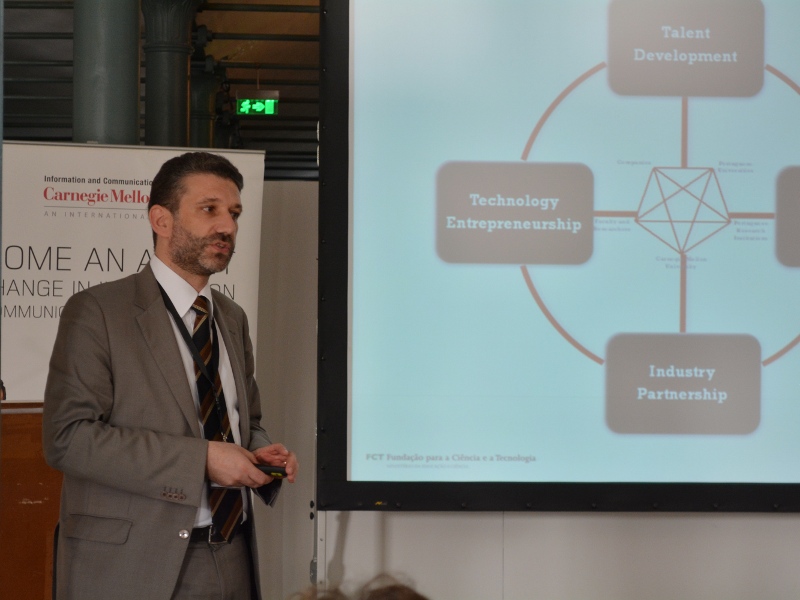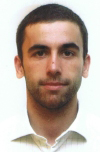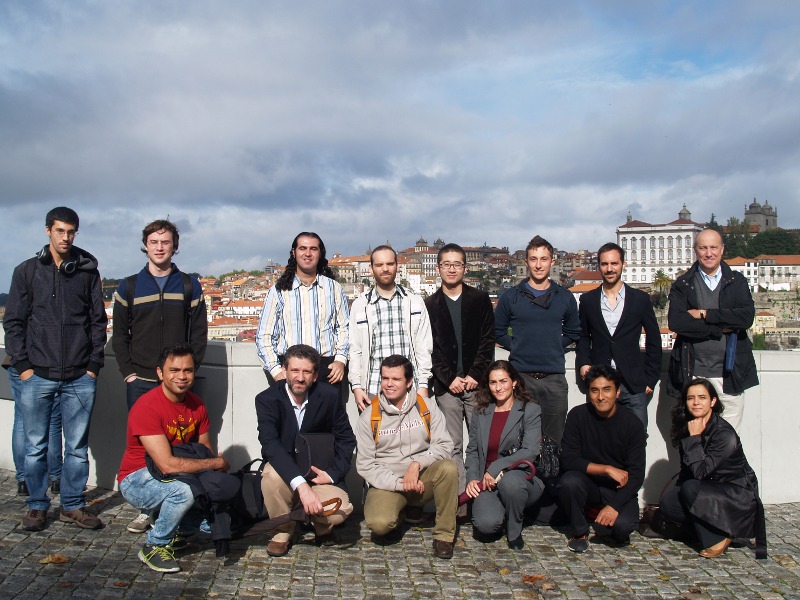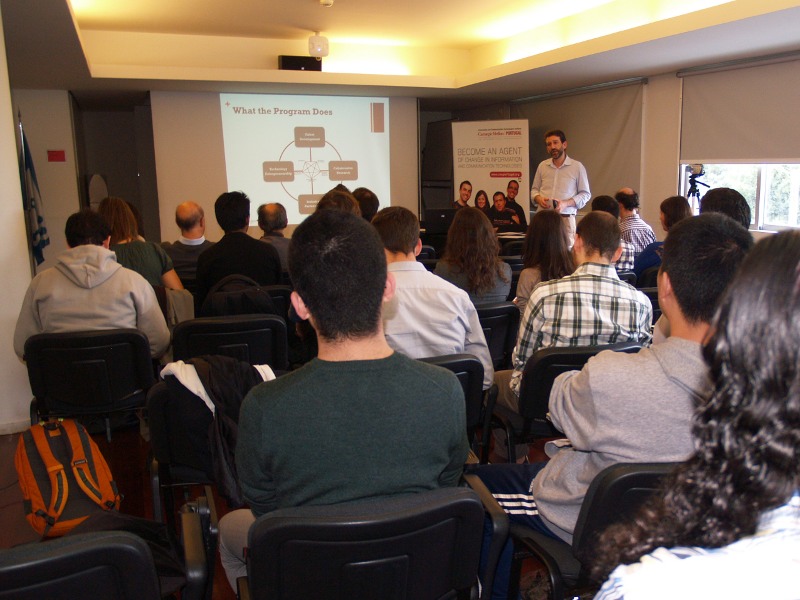Faculty Exchange Program: “An Excellent Opportunity to Strengthen Collaborations”
 |
Mónica Cameirão, a postdoctoral researcher at the Madeira Interactive Technologies Institute (M-ITI), spent four months at Carnegie Mellon University (between August and December 2013), more specifically at the Quality of Life Technology Center (QoLT), as part of the Faculty Exchange Program of the Carnegie Mellon Portugal Program. |
According to Mónica Cameirão, “participating in the CMU Portugal Faculty Exchange Program was a very enriching experience.” While in Pittsburgh, where CMU is located, the researcher had the opportunity “to learn new contents, structure and teaching methodologies of specific courses at CMU,” and to “collaborate in research activities with Dan Siewiorek and his team in the domain of interactive technologies for stroke rehabilitation at the QoLT,” she stated. In her opinion, “both goals have been fully accomplished and exceeded the initial expectations.”
With interests in Machine Learning and Human-Computer Interaction (HCI), Mónica Cameirão used her stay at CMU to learn more about those areas, and attended two courses taught by the Human-Computer Interaction Institute that she had previously identified as being relevant for her teaching and research. The first course, “Applied Machine Learning”, was taught by Carolyn P. Rose, professor at CMU. According to the Portuguese professor, “this is an important course that exploits various data mining approaches by applying different machine learning algorithms to a variety of situations, both to understand and/or predict patterns,” adding that “because of its characteristics and general applicability, the content of this course has a practical value for several research topics at my home institution.” She will use what she learned in her “own research for making predictions concerning recovery after stroke based on demographic characteristics.” The second course she attended was “Human-Computer Interaction Process and Theory”, taught by Jen Mankoff, professor at CMU, a course for Ph. D. students enrolled in the HCI program that covers a number of topics for developing research and teaching skills.
| Another goal of her four-month stay at CMU was to collaborate in research activities with Dan Siewiorek and Asim Smailagic at QoLT, which led to her involvement in an existing CMU project called QoLT Virtual Coach for Stroke Rehabilitation. Within this project, the CMU researchers are developing a computer mediated intelligent system for encouraging, guiding and monitoring upper limb exercises prescribed to stroke survivors that require ongoing rehabilitation. The current prototype integrates movement tracking, dialogue and emotion recognition to evaluate the physical and emotional state of its users, and adjusts the training sessions accordingly. In this project, “because of my background and experience, my main tasks were related to the evaluation of the Virtual Coach with end users, i.e., stroke survivors,” the Portuguese expert clarified. In addition to these research activities, Mónica Cameirão was also involved in the preparation of two collaborative research proposals involving QoLT and M-ITI for two calls in the context of the CMU Portugal program, namely the Entrepreneurial Research Initiatives and the Early Bird Projects calls. |  Mónica Cameirão using the Virtual Coach at CMU. These coaches aim to reduce the barriers of current modes of service and support delivery, assuring safety. http://www.cmu.edu/qolt/Research/QoLTSystems/virtualcoach.html |
When asked how she will apply what she learned at CMU in her work in Portugal, Mónica Cameirão stated that she will definitely incorporate some of the learned content in the courses she will be teaching in the near future, as well as put into practice specific teaching methodologies observed while at CMU. “Spending four months at CMU was a very exciting experience that gave me the opportunity to learn different teaching and research methodologies that allowed me to grow as a researcher and teacher,” she explains. Moreover, it “was an excellent opportunity to strengthen the collaboration with the Quality of Life Technology Center that will result in joint research activities in the near future,” she concluded.
A postdoctoral researcher with a Ph.D. in Information and Communication Technologies and Audiovisual Media, Mónica Cameirão worked in previous years as research assistant at the Synthetic, Perceptive, Emotive and Cognitive Systems Laboratory at the University Pompeu Fabra in Barcelona, Spain, and at the Institute of Neuroinformatics, in Zürich, Switzerland.
February 2014
_____
For more information about the Faculty Exchange Program visit https://cmuportugal.org/tiercontent.aspx?id=1970 .



















